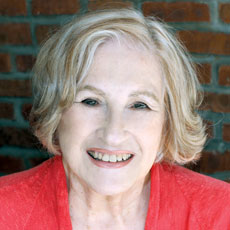
When does a Medicare hospital patient become eligible for coverage of post-discharge rehab services in a nursing home? Easy answer: After a three-day hospital stay.
Next question: When is a patient being treated in a hospital bed not a hospital patient? More complicated answer: When the patient is under “observation” and has not been formally admitted.
This is not a trick question, just the reality of Medicare regulations. Hospital observation stays have been increasing, as have Medicare auditors’ denial of claims related to short inpatient stays on the basis that they should have been counted as observation stays.
The distinction is more than semantic. A Medicare beneficiary who is just being observed is technically an outpatient and has to pay a higher hospital bill (Part B applies rather than Part A). And as an outpatient, he is not eligible for Medicare coverage for a post-hospital stay in a skilled nursing facility, no matter how many days he has been in the hospital. This has serious implications for patients and for nursing homes, which receive more than 60% of admissions directly from hospitals.
In an attempt to clarify its position, CMS issued a new rule on August 2 stating that beginning October 1 its auditors can presume that a hospital stay lasting over two midnights is an inpatient stay, and that a stay short of two midnights is an observation stay, which doesn’t meet the three-day requirement for rehab. For more detail, you can read my commentary at http://www.uhfnyc.org/news/880927.
Final question: When is a clarification not a clarification? Answer: When it raises more questions than it answers. Hospitals and doctors worry about how they can tell from an initial examination of a patient they have never seen before whether the presenting problem is serious enough for a two-midnight stay or will not need frequent monitoring. They don’t like arbitrary time boundaries complicating clinical decision making. The Association of American Medical Colleges is concerned that complex cases transferred from one hospital to another will not be counted as inpatient stays.
As for patients and families, nothing in the new rule requires them to be notified of the financial implications of observation status or addresses their confusion and dismay when they get unexpected hospital bills and are unable to pay for the recommended rehab services.
For their part, nursing home leaders —who have a lot at stake in how Medicare determines eligibility for post-acute rehab services — have mostly punted on the two-midnight rule and gone straight to the basic issue of the three-day hospital inpatient eligibility requirement. The American Health Care Association and National Center for Assisted Living, for example, have been advocating for an end to the three-day hospital stay requirement, which from their perspective would effectively remove the confusion about observation stays and eligibility for rehab.
They have some allies outside the industry. Proposed federal legislation, a report from the HHS Office of the Inspector General, and a class action lawsuit (all described in my commentary cited earlier) call for a change in policy. And in September the federal Long-Term Care Commission recommended, among many items, that CMS end the three-day inpatient hospital stay requirement. Neil Pruitt, Jr., CEO of UHS-Pruitt and AHCA/NCAL Board Chairman, was a member of the Commission.
Where will all this lead? The CMS two-midnight rule does not seem to be the end of the story. But until there is a resolution from the federal court or Congress, hospitals and nursing homes should work together to make sure that patients’ needs are at the center of decision making and that the financial impact of an observation stay is clearly spelled out. Patients and families deserve no less.
Carol Levine directs the Families and Health Care Project at the United Hospital Fund in New York City.



